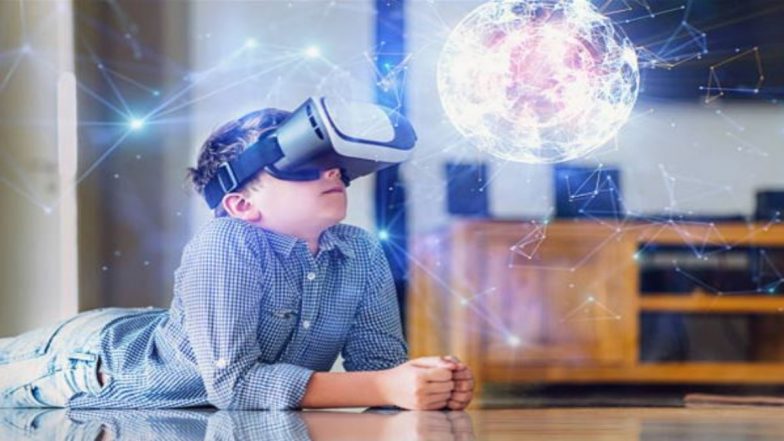Technology has always been a key motivator for human progress throughout history. From the Stone Age, we’ve seen how humans use tools to make things better. The world has changed since then, with rapid innovations in different aspects of our lives. This time it’s the entertainment industry.
Whether it’s in the creation of movies and TV shows, the streaming of music, games, or live events, technology has a significant impact. It’s only proper to find out how much effect it has made in different industries and what possible impacts it is bound to make in the future.
Film and Television Production
Modern technology has completely altered the way films and TV shows are made. The transition from analog to digital cinematography has leveled the playing field for filmmakers. Digital cameras give filmmakers more freedom to experiment and iterate, thanks to their greater versatility, affordability, and quick response.
Cinematographers can now construct more lifelike and breathtaking scenes with the help of CGI, motion capture, and sophisticated editing tools. Also, independent filmmakers no longer have to depend on the old studio structures to display their work because digital distribution platforms have given new ways to do it.
This has also translated to effective post-production film editing. It has also brought about modern streaming services like Netflix, and Amazon Prime that allow easy access to movies made. Social media has also been a tool for easy marketing of movies.
Music Industry
Whether it’s the production or the dissemination of music, technological advancements have profoundly affected the music industry. Now that software instruments and digital audio workstations (DAWs) have become commonplace, musicians can make high-quality music without leaving their homes.
Technology has also allowed collaborations of artists who are far apart geographically. This is made possible with cloud-based tools and file sharing all in real-time. Musicians can now reach a wider audience and sell more of their music because of the rise of social media and other distribution venues like Spotify.
Streaming services have largely supplanted physical media. This has reduced the need for record companies as a medium for the worldwide distribution of musical works. Social media is a modern technological creation and has also played a big part in marketing music productions.
Gaming Industry
The gaming industry has been able to create games that are more lifelike and immersive than ever before. The gaming experience has been taken to new heights of involvement with the advancement of graphics processing units (GPUs), virtual reality (VR), and augmented reality (AR).
The internet has also made gaming online possible. Games that are usually only played in physical venues can now be played virtually. This is the case with industries like video gaming, esports, and iGaming. The iGaming industry received one of the biggest developments as online casinos can now be accessed from anywhere. These sites are even made more accessible via mobile phones and mobile applications. Thus, you don’t need to worry about where to play your favorite games when you are out of the country. You can see gambling websites online anywhere you are. All you need is an internet-enabled device and a strong Internet connection. Sometimes, you may need a VPN to access some of the sites.
Technological advancements have also brought about online multiplayer capabilities. Players can now interact and compete with others all around the world, making gaming a more social experience. Also seeing explosive growth is esports, or competitive gaming competitions, which draw in huge crowds and make a tonne of money.
Live Entertainment
Everything from concerts and theater performances to theme parks has been transformed by technological development. It has brought breathtaking visual effects, lighting designs, and stage set-ups. Sound qualities and acoustics have also significantly improved, with sophisticated audio mix processing, etc.
The internet still plays a big role here for live streams, which allows the audience to enjoy these live concerts remotely. Mobile apps, interactive displays, and wearable technologies have also increased audience engagement. Immersive live entertainment experiences are now also within reach, thanks to virtual and augmented reality (VR/AR) technology innovations.
Moreover, ticketing and event administration have been made easier by technological advancements. The convenience of online ticketing platforms has made it possible for audience members to buy tickets, select their seats, and receive digital tickets on the go.
Advertising and Marketing
Innovations in technology have radically altered marketing and advertising in the entertainment sector. With this, targeted advertising has been made possible. There are advanced data analytics and tracking tools to gather information about consumers easily.
New channels for reaching audiences have opened up with the rise of influencer marketing. It uses popular social media platforms like Facebook, YouTube, and Instagram to promote goods and services. Adverts are now being made like content creations, making products more relatable to their intended demography of users.
Additionally, new technologies have made marketing more autonomous. You can send bulk emails automatically daily or monthly without human assistance.
Future of Technology In The Entertainment Industry
While there is no doubt that technology has brought enough innovations, there’s no limit to how much more it can impact the industry further. Augmented and virtual reality are some of the most significant innovations we should expect in years to come. This will make entertainment more immersive, and interactive. Along with this are artificial intelligence and machine learning. They are becoming more powerful. Some are already creating entertainment from start to finish, without human intervention.
Streaming services are also one technology to look out for. They have made it possible to create more entertaining content, thereby giving its audience more enjoyment. Other tech trends include faster 5G internet speeds, blockchain technology for easier monetization, entertainment industry sustainability, etc.
Conclusion
All parts of the entertainment industry have been profoundly affected by technology. This has changed the way content is made, distributed, and enjoyed. It has also broadened the reach of artists and innovators, given them more agency, and revolutionized the entertainment industry.
The entertainment industry will stay ahead of the curve if it continues to embrace new technology and incorporate it into its operations. Platforms like Facebook, YouTube, Spotify, and Instagram will create more engaging and immersive entertainment.





